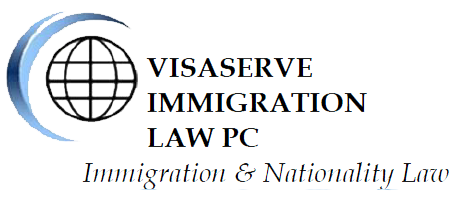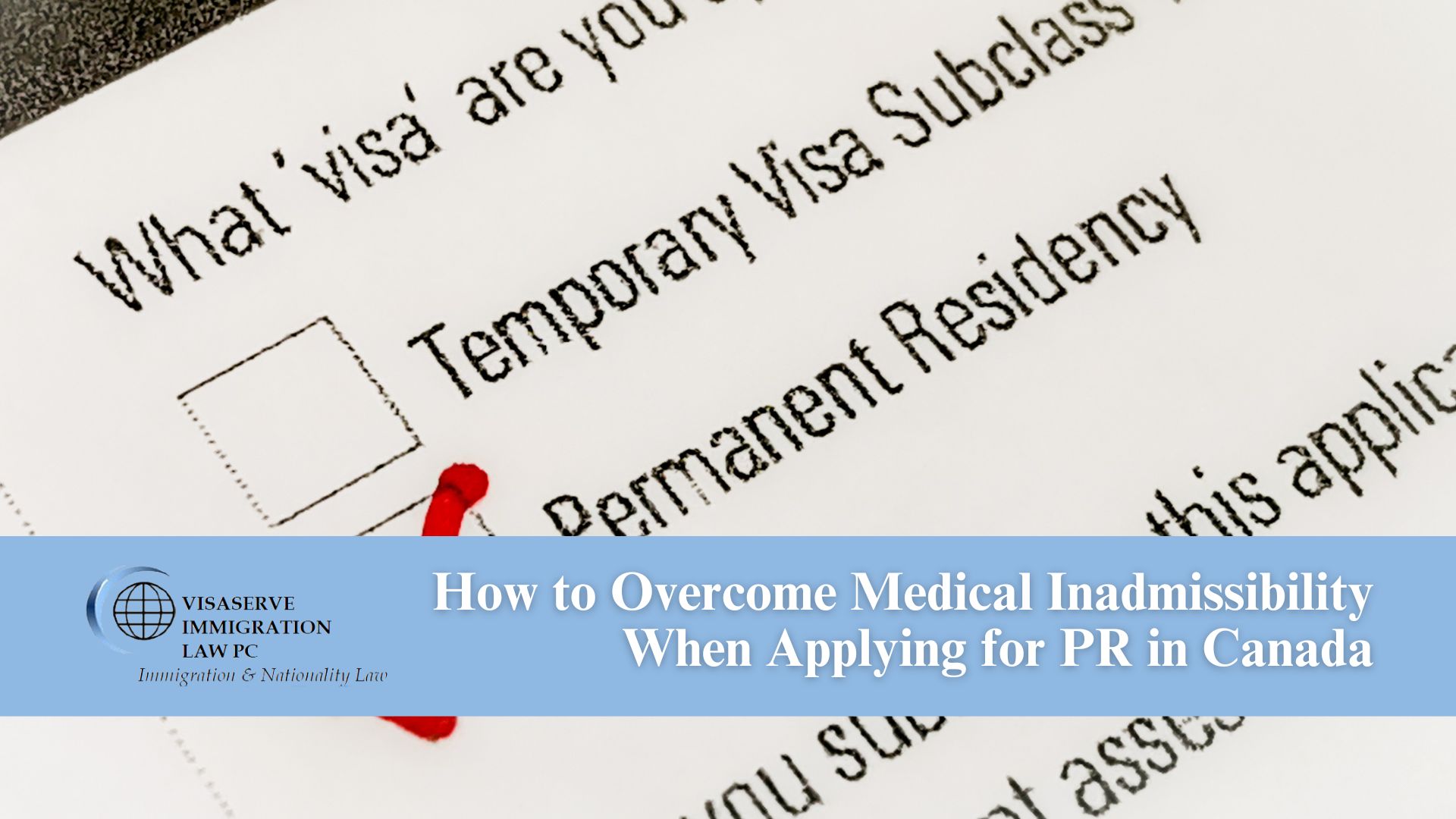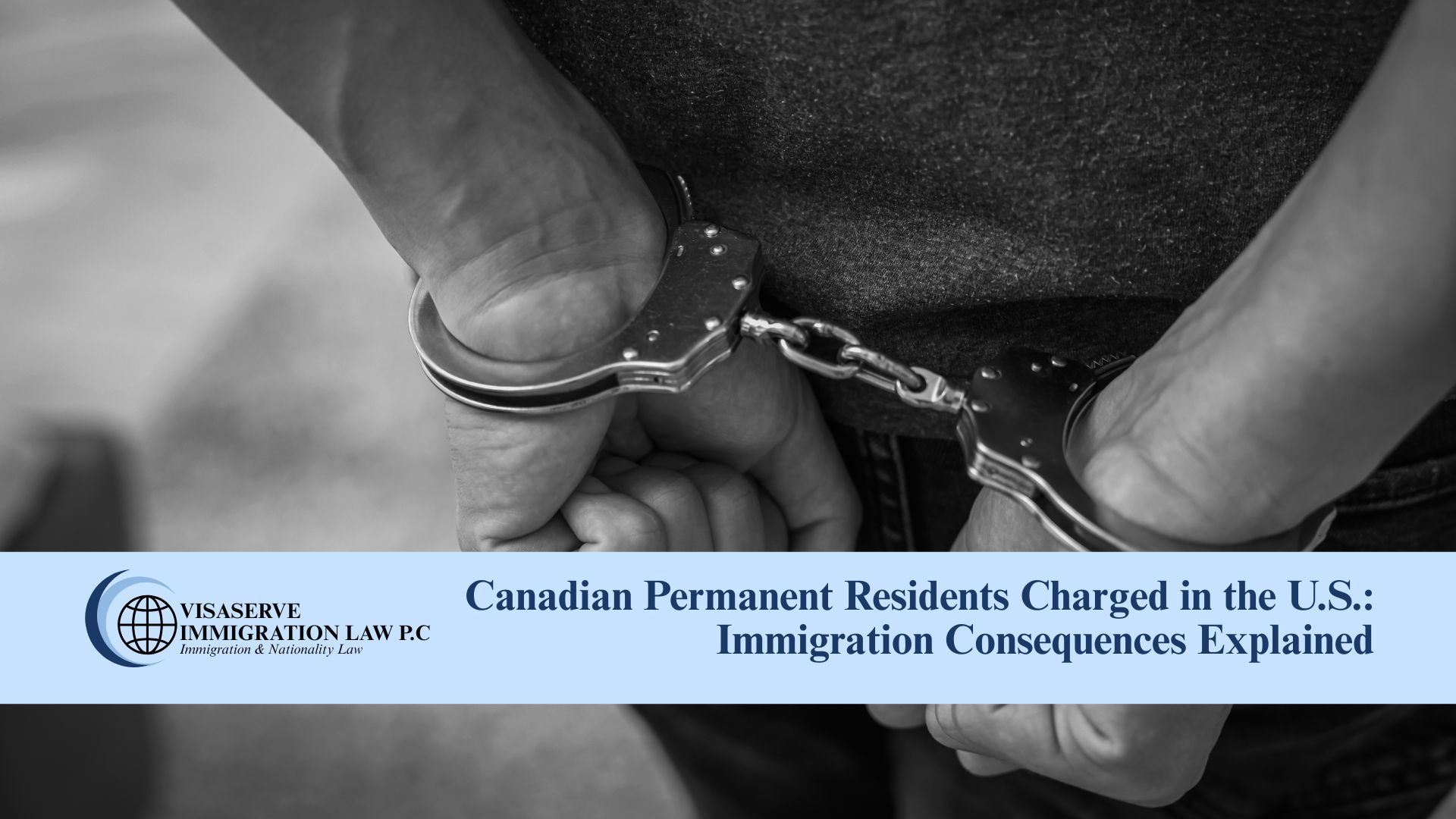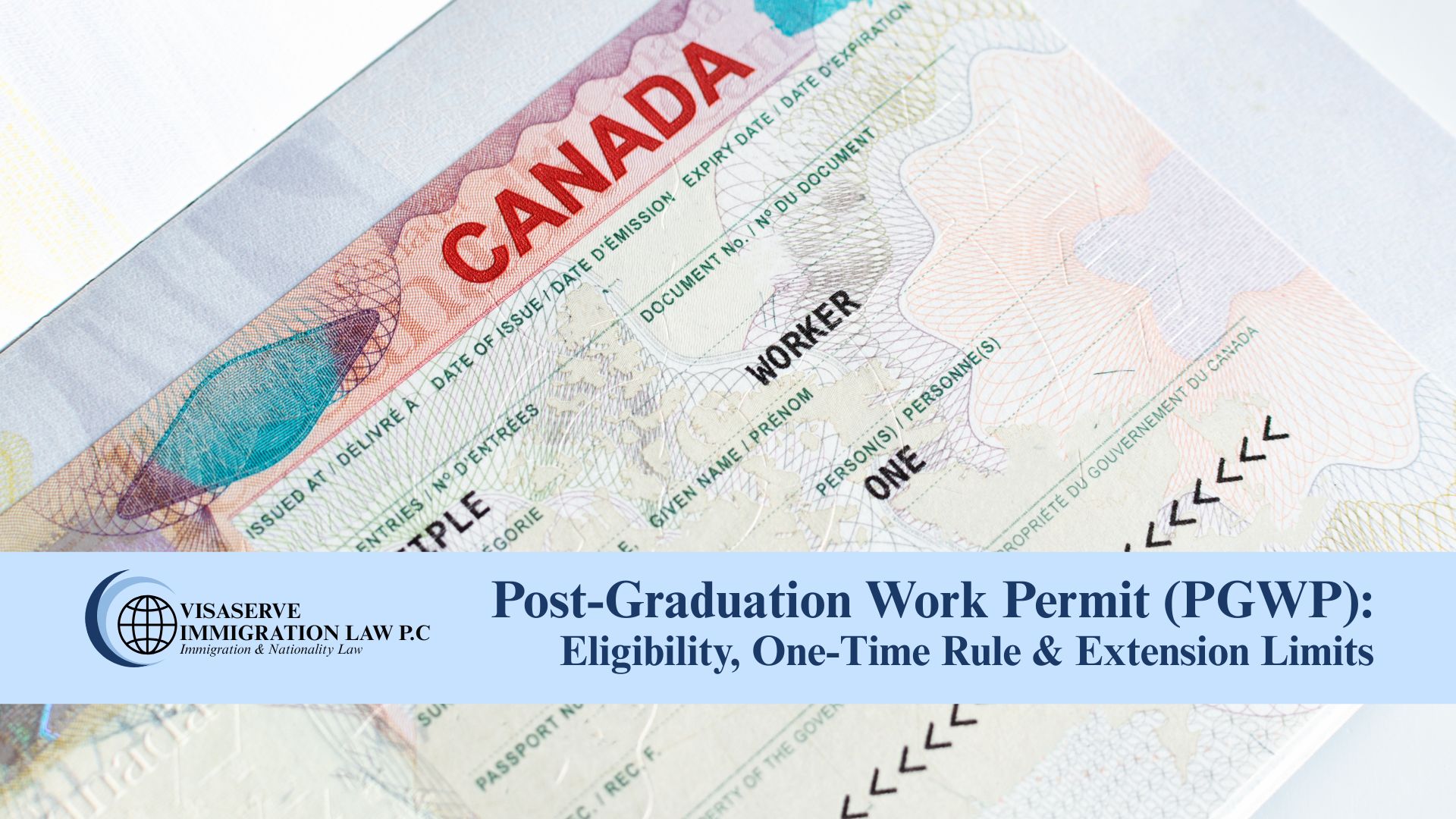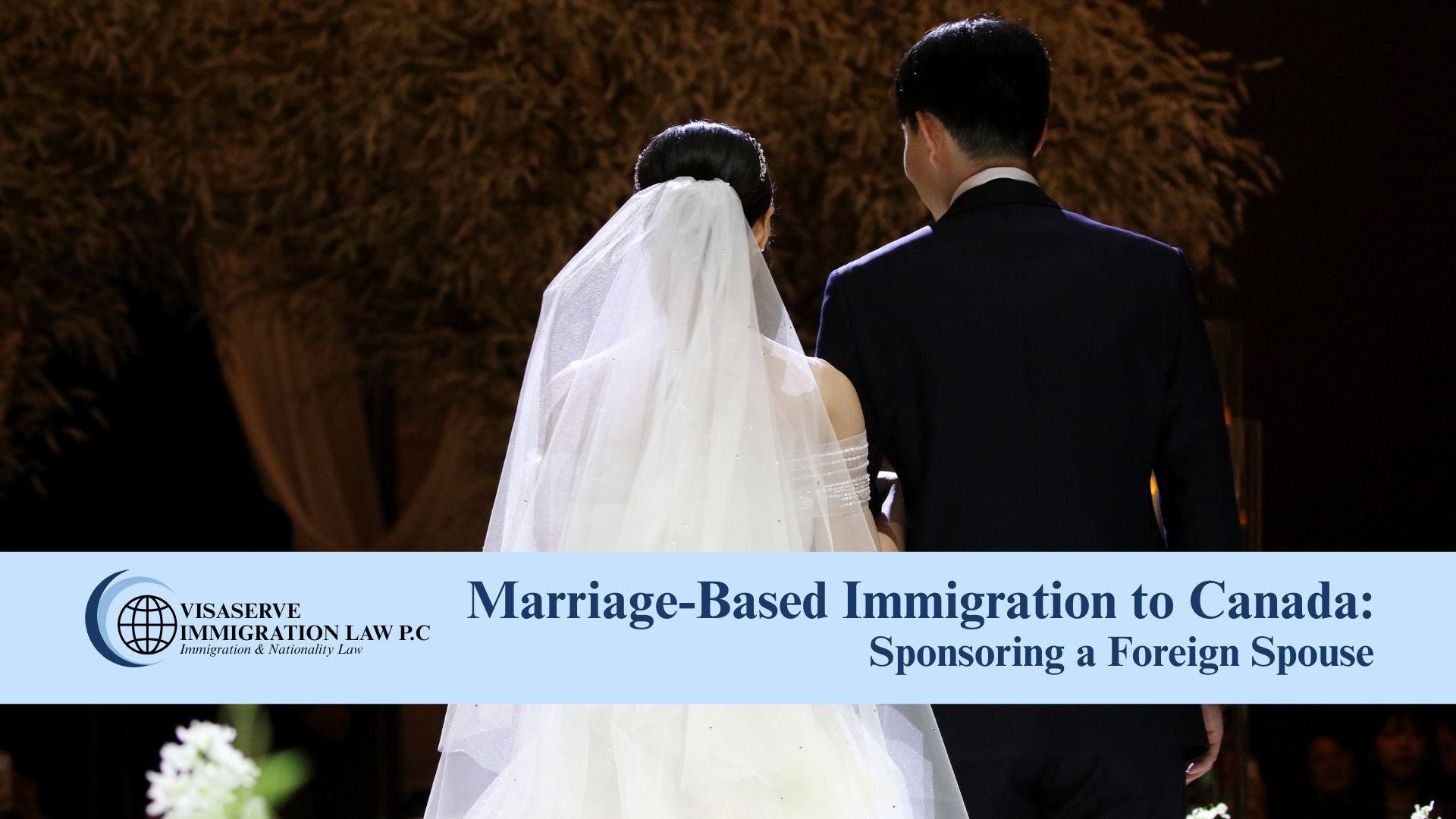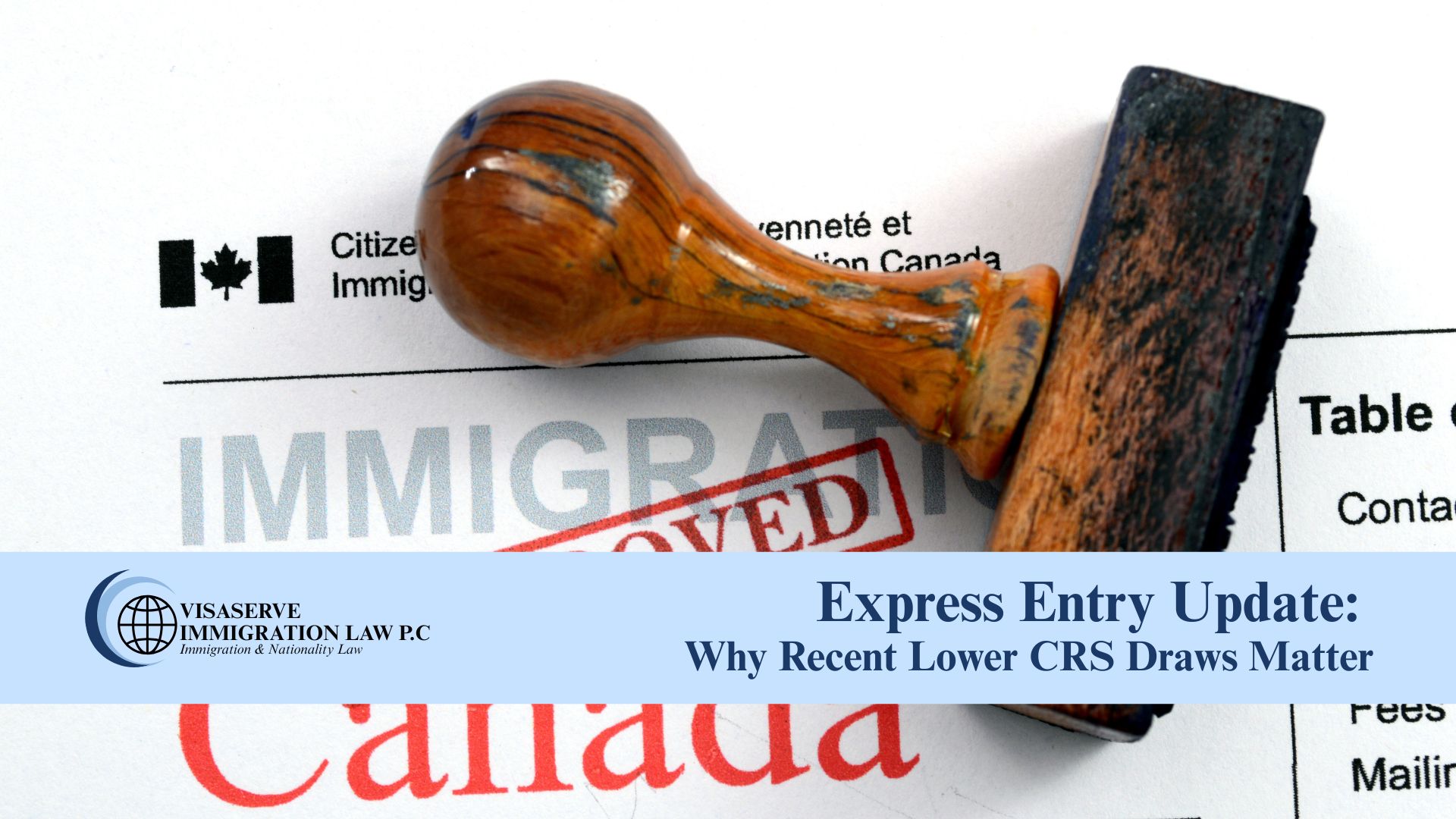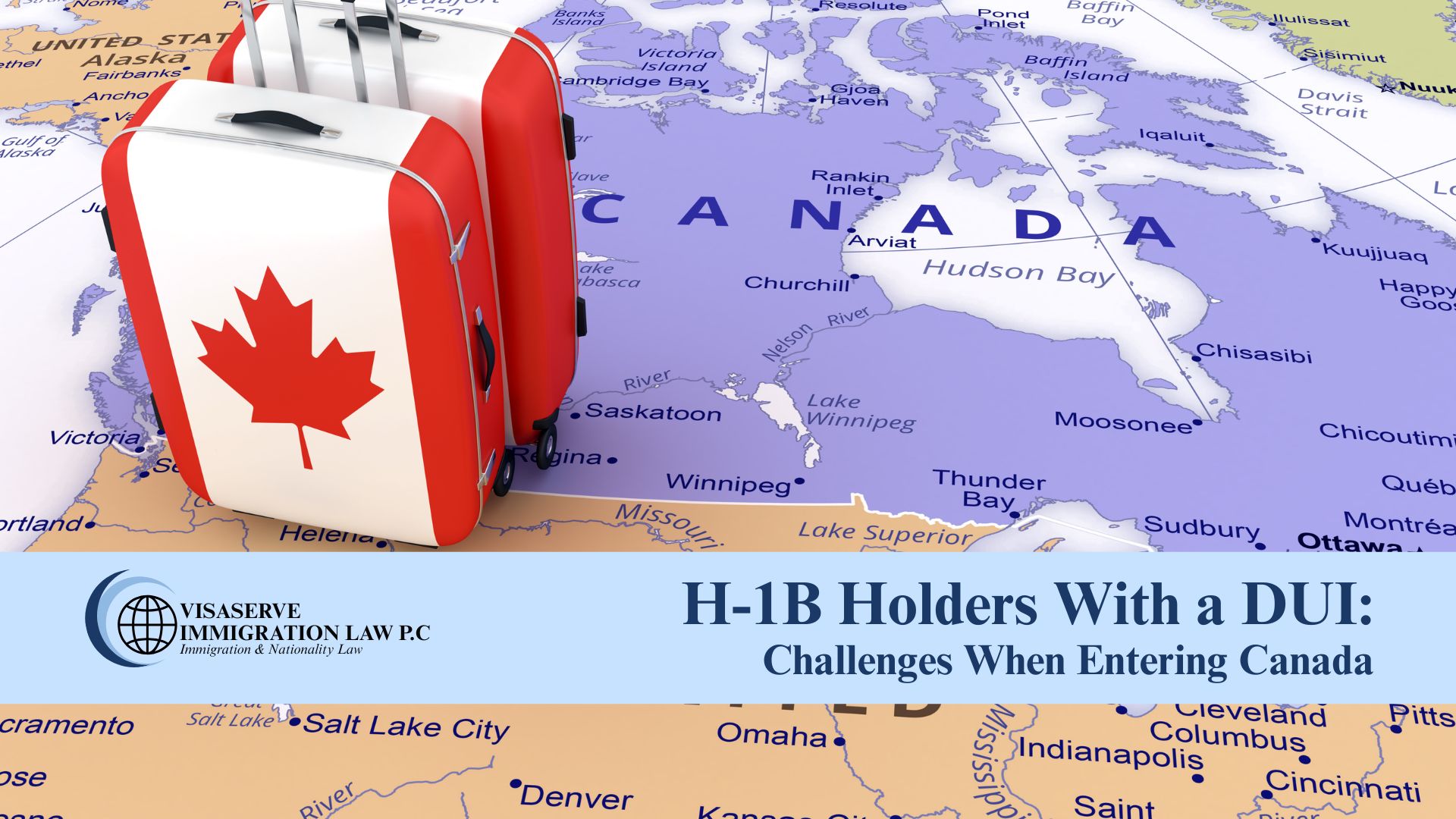A finding of medical inadmissibility during your Canadian permanent residence (PR) application can feel like a major roadblock—but it doesn’t have to be the end of the road. With the right strategy and legal guidance, many applicants can successfully respond to IRCC’s concerns and continue their immigration journey.
Here’s what you need to know—and how VisaServe Immigration Law P.C. can help you take action.
What Is Medical Inadmissibility?
Under the Immigration and Refugee Protection Act (IRPA) and related regulations, any applicant coming to Canada—whether to visit, study, work, or live permanently—must meet health admissibility criteria.
You can be found medically inadmissible for one of three reasons:
1. Danger to Public Health
IRCC may refuse your application if your medical exam reveals that you:
-
Have a contagious disease like active tuberculosis or syphilis
-
Have been in close contact with someone with an infectious disease
-
Pose a risk of spreading disease to Canadians
2. Danger to Public Safety
This includes conditions that may lead to:
-
Sudden physical or mental incapacity
-
Violent or unpredictable behaviour that could endanger others
3. Excessive Demand on Health or Social Services
This is the most common reason for medical inadmissibility in PR cases. Your condition may be flagged if:
-
It could negatively affect wait times for other Canadians, or
-
It would cost more than the annual threshold for healthcare or social service delivery
In 2025, the excessive demand threshold is set at $135,810 over five years, or $27,162 per year.
What Happens If You’re Found Medically Inadmissible?
If IRCC suspects that your condition falls into any of the three categories above, they will not refuse you immediately. Instead, you’ll receive a Procedural Fairness Letter (PFL).
This letter outlines:
-
The specific medical concern
-
The evidence that IRCC reviewed
-
Your opportunity to respond within 90 days
This is your critical opportunity to act—to explain, clarify, and submit evidence that could reverse the potential refusal.
How to Respond to a Medical Inadmissibility Finding
1. Review the Procedural Fairness Letter in Detail
Read the letter carefully to understand:
-
Which category of inadmissibility applies to you
-
What evidence IRCC used in its preliminary decision
2. Gather Updated Medical Evidence
You may want to:
-
Submit updated medical reports or lab results
-
Provide proof of improvement or remission of your condition
-
Include letters from treating physicians or specialists
3. Submit a Cost Analysis or Treatment Adjustment
If your case involves excessive demand:
-
You may provide cost estimates showing that your treatment is under the threshold
-
Highlight alternative or lower-cost treatments (e.g., generic drugs, home care)
-
Show you can privately pay for treatment, relieving pressure on public systems
4. Prepare a Mitigation Plan (if invited)
Some applicants will be invited to submit a mitigation plan, which outlines:
-
How you’ll manage the condition independently
-
Private insurance, community support, or family-funded care
-
How you’ll avoid relying on public services
At VisaServe Immigration Law P.C., we assist clients in drafting comprehensive mitigation plans that meet IRCC expectations and align with case law.
Who Is Exempt from Medical Inadmissibility Due to Excessive Demand?
Not all applicants are subject to this rule. Exemptions apply to:
-
Refugees and their dependants
-
Protected persons
-
Certain sponsored family members (e.g., spouses, common-law partners, dependent children)
However, these groups may still be refused for reasons of public health or public safety.
Why Legal Representation Matters
Responding to a medical inadmissibility finding is highly technical. It requires:
-
Understanding how IRCC interprets costs and risks
-
Submitting a compelling legal and factual rebuttal
-
Ensuring your rights to procedural fairness are fully respected
With decades of combined immigration experience, our team at VisaServe Immigration Law P.C. knows how to present your case clearly, compassionately, and with strong supporting documentation.
Conclusion: You Have Options
A medical inadmissibility letter from IRCC can feel devastating—but it is not final. Many applicants have successfully challenged these findings by submitting strong, well-prepared responses backed by medical and legal evidence.
If you’ve received a Procedural Fairness Letter or believe your application may be at risk, reach out to us immediately. The clock is ticking—but with the right strategy, your pathway to Canadian permanent residence may still be wide open.
Book a consultation today with Visaserve Immigration Law P.C., and get expert help navigating your PFL response or mitigation plan.
